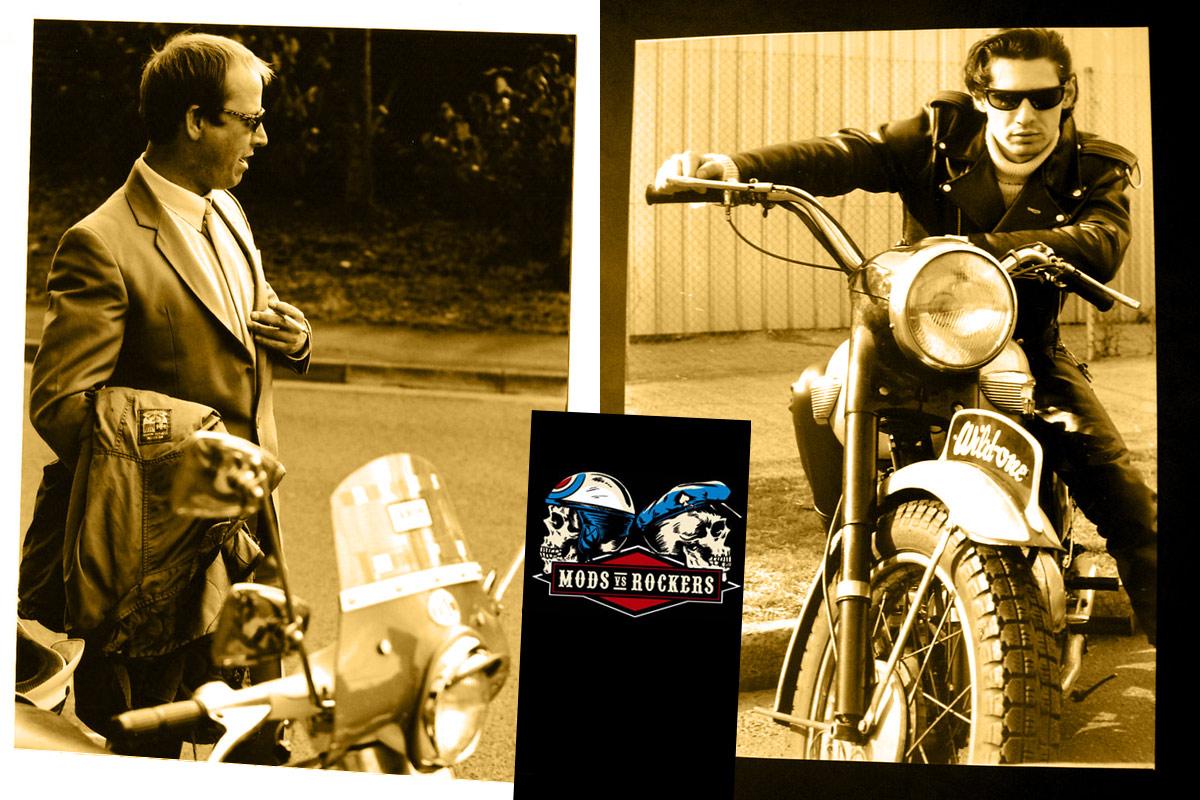Mods vs rockers - Mods vs rockers
Contents:
The Mods and the Rockers, two rival British youth gangs, met on the Easter weekend of 1964, the long bank holiday, at various resorts in England, and violence broke out. The riots in Brighton Beach and elsewhere attracted press attention in the United Kingdom and abroad. There seems to be little evidence that prior to the riots that broke out in 1964, there was widespread documented physical hostility between the two groups. However, "mods" and "rockers" represented two very different approaches for the disenfranchised British youth.
Rockers were associated with motorcycles, in particular the larger, heavier, more powerful Triumph motorcycles of the late 1950s. They preferred black leather, as did members of the American motorcycle gangs of the era. Their musical tastes centered around white American rock and roll like Elvis Presley, Gene Vincent and Eddie Cochran. In contrast, mods consciously tried to appear new (hence "mod" or "modern") by favoring Italian motor scooters and wearing suits. Musically, Mauds favored contemporary jazz, Jamaican music, and African-American R&B. In the early 1960s, the lines between mods and rockers were clearly drawn: mods saw themselves as more sophisticated, more stylish, and more timely than rockers. However, rockers considered mods to be effeminate snobs.

Roots of mods and rockers
Any discussion of mods and rockers should also include discussion of Teddy Boys and Teddy Girls. This segment of the British youth subculture developed after the Second World War - it preceded mods and rockers. Curiously, the Teddy Boys (and Girls) are considered the spiritual ancestors of mods and rockers.
A curious and somewhat confusing mix of various gang-like youth subcultures in the late 1950s in the UK plays a role in the youth exploitation film Beat Girl. Starring Christopher Lee, Oliver Reed, Gillian Hills, Adam Faith and Noel Adam, this 1960 film shows elements of the emerging Mod culture (a jazz-loving group of cafe-bar teenagers represented by Faith's, Hills's and Reed) and a tinge of the emerging rocker culture (in the form of a large American-style car used in one of the scenes in the film, and hairstyles worn by some minor young male characters). Near the end of the film, a group of Teddy Boys destroy Faith's sports car. It is interesting to note that the nascent Mods and Rockers in the film do not seem to conflict with each other, or at least not as much as the "Teds" (as Faith's character Dave calls them) conflict with these new groups.
Mods and rockers as a youth subculture of the working class
Although modders and rockers as such are not detailed - they are used mainly as a metaphor for the changing aesthetics in British youth culture from the 1950s to the early 1960s - it is important to note that sociologists have determined that despite their external differences (hair, clothing , mode of transportation, etc.) groups have several important links in common. First, the youth gang members of the 1950s and early 1960s tended to be working class. And while some gang members described themselves as middle class, it was very rare for Britain's upper social and economic classes to be represented in mods or rockers. Similarly, we will see that the skiffle and rock musicians who emerged in British youth culture in the 1950s and early 1960s also tended to come from the working class.
Mods against rockers on the beach in Brighton, 1964.
It was a real clash: mods against rockers, two youth movements of the 60s, which represented a great split in society, staged a pandemonium on the beach at the Palace Pier in Brighton on May 18, 1964. Gangs from each group threw deck chairs. , threatened with knives passers-by in the resort town, made fires and viciously attacked each other on the beach. When the police arrived, the teenagers threw stones at them and staged a massive sit-in on the shore - more than 600 of them had to be controlled, about 50 were arrested. This now infamous brawl in Brighton and other seaside resorts over each group's claim to fame was even documented in the 1979 film Quadrophenia.
Video mods vs rockers
Fashionistas and rockers on Brighton Beach, 1964
Rebel cultures of the 60s - mods and rockers
Mods, rockers and music of the British Invasion
Leave a Reply